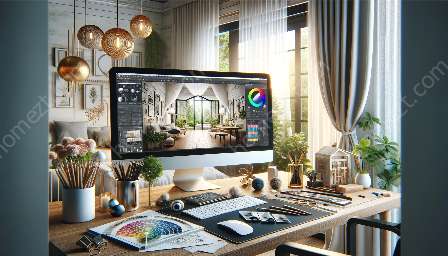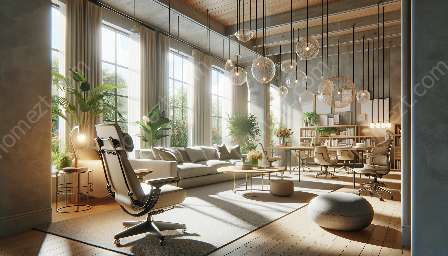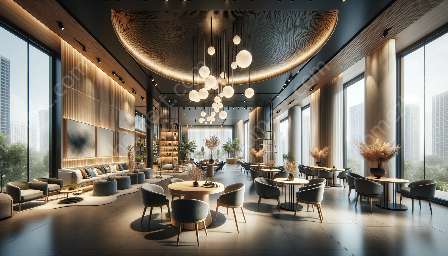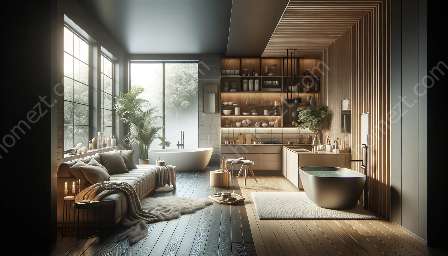Working from home has become the new norm for many people, and as a result, the design of home offices and study rooms has taken on greater significance. One key element that can greatly impact the overall ambiance and functionality of a home office is the incorporation of natural light.
The Power of Natural Light
Natural light has a profound impact on cognitive function, mood, and well-being. When natural light streams into a workspace, it can enhance concentration, boost energy levels, and improve mental clarity. Exposure to natural light also helps regulate the body's circadian rhythms, leading to better sleep patterns and overall health.
Productivity and Creativity
Studies have shown that natural light can significantly improve productivity and creativity. Workers in spaces with ample natural light tend to experience fewer instances of eyestrain, headaches, and fatigue, leading to increased focus and efficiency. Additionally, natural light has been linked to enhanced creativity, as it creates a more stimulating and inspiring environment.
Emotional Well-Being
The presence of natural light in a home office can have a positive impact on emotional well-being. Sunlight triggers the release of serotonin, a neurotransmitter that contributes to feelings of happiness and relaxation. Individuals working in spaces with natural light often report reduced stress levels and an overall sense of well-being.
Designing the Home Office for Natural Light
When designing or revamping a home office or study room to optimize natural light, several key factors should be considered:
- Positioning: Place the workstation in close proximity to windows or skylights to maximize the amount of natural light that enters the space. This can help reduce the reliance on artificial lighting during daytime hours.
- Window Treatments: Choose light and airy window treatments that allow for the maximum passage of natural light. Avoid heavy drapes or dark blinds that can obstruct the flow of sunlight into the room.
- Reflective Surfaces: Incorporate reflective surfaces such as mirrors or light-colored walls and furniture to bounce natural light around the room, creating a brighter and more open feel.
Styling the Home Office with Natural Light in Mind
Integrating natural light into the design of a home office or study room can also be enhanced through thoughtful interior design and styling:
- Minimalist Approach: Embrace minimalist design principles to create a clean and uncluttered workspace, allowing natural light to take center stage and promote a sense of tranquility.
- Biophilic Design: Bring the outdoors in with biophilic elements such as indoor plants, natural materials, and earthy color palettes, which complement the presence of natural light and create a harmonious connection to nature.
- Flexible Lighting Options: Supplement natural light with the strategic placement of task lighting or adjustable fixtures to ensure optimal illumination throughout different times of the day.
Conclusion
It's evident that incorporating natural light into a home office can have far-reaching psychological effects, from boosting productivity and creativity to enhancing emotional well-being. By carefully considering the design and styling aspects that promote the influx of natural light, individuals can cultivate a workspace that not only supports their work requirements but also contributes to their overall sense of balance and inspiration.
Whether it is through repositioning workstations, choosing the right window treatments, or complementing natural light with biophilic elements, the psychological impact of natural light in a home office is undeniable.


























